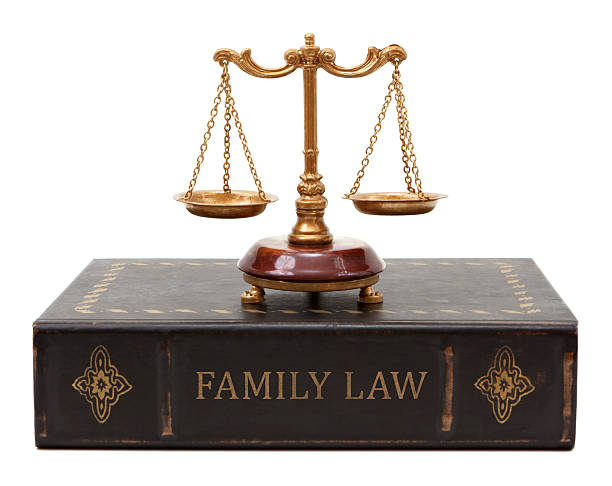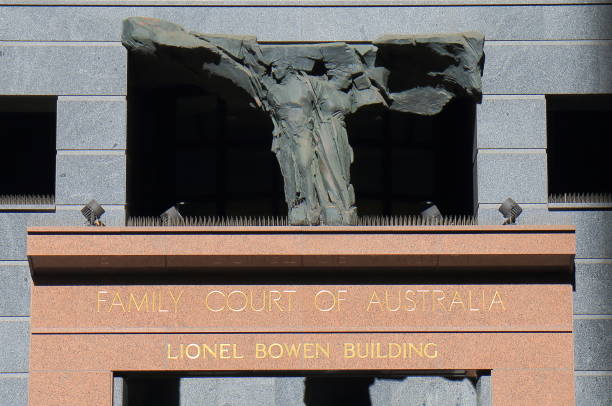The Family Law Act (1975) contains Sections highlighting the Rules of Court and Rules Advisory Committee. In this blog, we go over Section 123 (Rules of Court). Moreover, we will also explore Section 124 (Rules Advisory Committee) under the Family Law Act (1975).
Section 123: Rules of Court
Section 123 of the Family Law Act 1975 (FLA) deals with the power of the Rules of Court to prescribe rules and procedures for family law proceedings. The Rules of Court are procedural rules that govern the conduct of family law proceedings in Australia. They are made under the authority of the FLA.
Section 123 of the Family Law Act 1975 (Cth) outlines the rules of court that apply to family law proceedings. The summary of the section is as follows:
- The Chief Justice of the Family Court or the Chief Judge of the Federal Circuit Court, in consultation with the Attorney-General, makes the rules of court for family law proceedings.
- The rules of court can deal with any matter relating to the practice and procedure of the court. This includes the form and content of court documents, the conduct of hearings and trials, use of expert evidence, conduct of conferences, and the enforcement of court orders.
- The rules of court must be consistent with the provisions of the Family Law Act and any other relevant legislation.
- The rules of court may provide for different procedures and practices to be followed in different cases, having regard to the nature and complexity of the issues involved, and the needs and circumstances of the parties.
- The Commonwealth Gazette must publish the rules of court in accordance with the Chief Justice or Chief Judge.
In summary, Section 123 of the Family Law Act Australia provides the framework for the rules of court that apply to family law proceedings.
Importance of Rules of Court
The purpose of the Rules of Court is to ensure that family law proceedings are fair and efficient. It also ensures that all parties are treated fairly and have the opportunity to present their case.
The Chief Justice or Chief Judge make these rules. These rules govern the practice and procedure of the court, ensuring that all proceedings are fair, efficient and effective.
The Rules of Court are regularly reviewed and updated. This ensures that they reflect changes in the law and the needs of the community. It is important to comply with the Rules of Court when conducting family law proceedings. Failure to do so can result in delays, costs, and other adverse consequences.
If you are dealing with a family law matter, we recommend that you seek the assistance of a family law solicitor. They can provide you with advice and represent your interests in court.

What Is Rules Advisory Committee?
The Rules Advisory Committee is a body that advises the Commonwealth Attorney-General on the development and review of the Family Law Rules. The Committee consists of legal practitioners, judges, and other experts in family law who the Attorney-General appoints.
The Family Law Rules provide the procedural framework for the Family Court of Australia and the Federal Circuit Court of Australia to hear and determine family law matters. The Rules set out the requirements and procedures for:
- commencing proceedings,
- filing documents,
- conducting hearings, and
- making orders in family law matters.
The Rules Advisory Committee is responsible for reviewing and recommending changes to the Family Law Rules. This is to ensure that they remain current and effective. The Committee may also consider proposals for changes to the Rules made by other stakeholders in the family law system.
Overall, the Rules Advisory Committee plays an important role in ensuring that the Family Law Rules are accessible, efficient, and fair for parties involved in family law proceedings.
Section 124 Family Law Act: Rules Advisory Committee
Section 124 of the Family Law Act 1975 (Cth) outlines points in relation to the Rules Advisory Committee. Subsection (1) states that there shall be a a Rules Advisory Committee consisting of:
- such Judges of the Federal Circuit and Family Court of Australia (FCFOA Division 1),
- such Judges of the Federal Circuit and Family Court of Australia (Division 2),
- such Judges of Family Courts of States and such other persons whom the Chief Justice of the Federal Circuit and Family Court of Australia (Division 1) appoints.
Subsection (2) states that the function of the Rules Advisory Committee is to advise the Judges of the FCFOA (Division 1) in relation to the making of standard Rules of Court as requested from time to time
Furthermore, Section 124 states that a Judge of a States’s Family Court cannot be a member or the Rules Advisory Committee unless the Governor-General has made an arrangement under Section 122B. The Governor-General must make such an arrangement in relation to the performance by the Judge of functions as a member of the Rules Advisory Committee.
Subsection (5) of Section 124 states that members of the Rules Advisory Committee will receive allowances in respect of expenses in connection with their duties.
Lastly, subsection (6) under this Section states that a Rules Advisory Committee member may resign by writing, that they must sign and deliver to the Chief Justice of the FCFOA (Division 1).

Seek Advice From Family Law Solicitors
If you have any family law enquiries, do not hesitate to connect with our friendly and experienced team of leading family lawyers today. We have a wealth of experience in a range of legal matters across family law, commercial law, property law, criminal law, among others.
We also offer dispute resolution services to ensure that you resolve all your matters outside of court. Court procedures are generally very expensive and time-consuming. Courts recommend that parties attempt alternative dispute resolution before commencing court proceedings.
To read articles on other legal topics, view our blog page here. For more information or in case of any enquiries, send us a message here.
